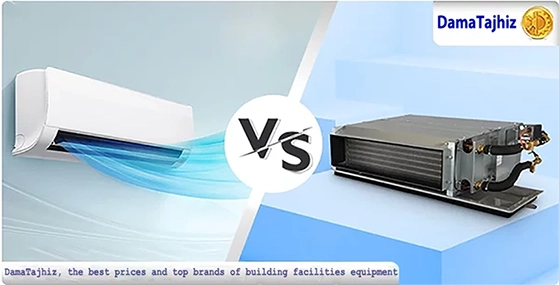Fan Coil Unit vs. Air Handling Unit
Fan coil units (FCUs) and air handling units (AHUs) are key parts of HVAC systems. Both provide heating and cooling, but FCUs are for smaller spaces with local control, while AHUs are for larger areas with added features like air filtration, humidity control, and ventilation. The text covers their components, applications, pros and cons, a comparison between them, and how to calculate FCU capacity.
Table of Contents
Fast shipping nationwide
Secure payment
Valid warranty
After-sales service
Address
Head Office: No. 463,Talebian Alley,Taleghani St.Tehran,Iran
Phone
Fax
Email


DamaTajhiz has provided the opportunity to sell and ship specialized HVAC equipment for applicants in the following countries as the first and the most popular online store for selling HVAC equipment (Heating , Ventilation , Cooling , Air conditioning) in the Middle East : Afghanistan – Tajikistan - Uzbekistan – Turkmenistan – Azerbaijan – Armenia – Georgia – Turkey – Iraq – Syria – Jordan – Kuwait – Emirates – Qatar – Oman.





